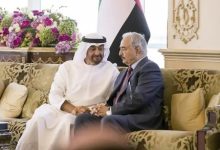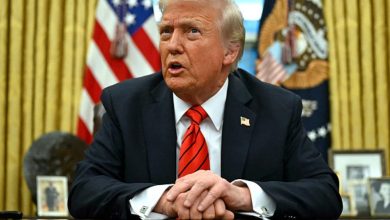Sheikh Tahnoun bin Zayed: The Shadow Billionaire Behind Global Espionage and Surveillance
From Espionage to AI Dominance: How Abu Dhabi’s Most Powerful Man Is Redefining Global Tech and Security.
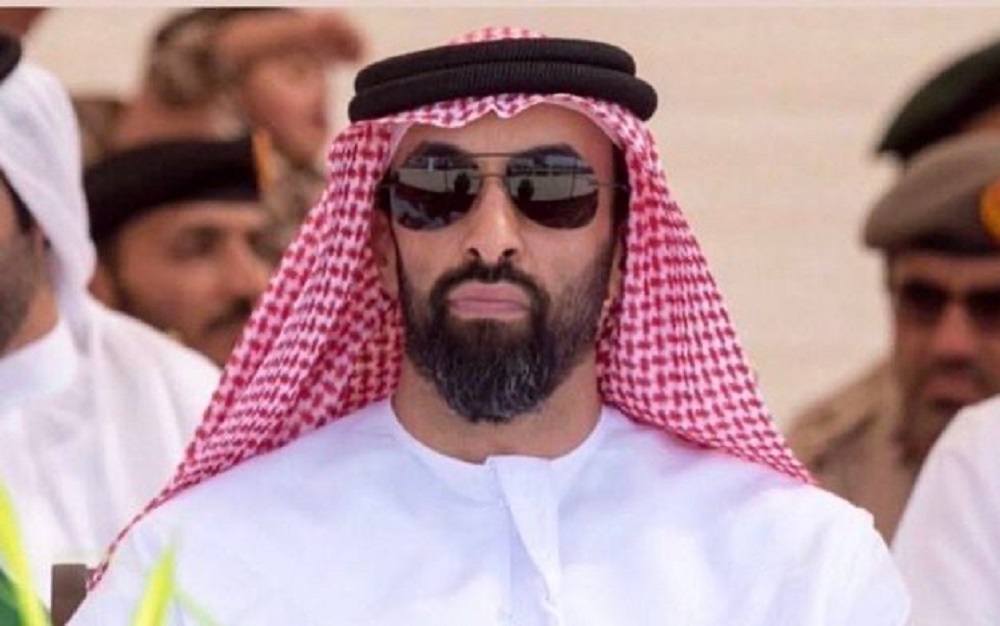
Watan-Sheikh Tahnoun bin Zayed Al Nahyan, a key figure in Abu Dhabi’s ruling family, is often described as the “man in the shadows” with billions at his disposal, acting as the mastermind behind surveillance and espionage technologies in the UAE.
A recent in-depth article by Wired magazine, written by renowned journalist Bradley Hope, sheds light on Tahnoun’s vast influence. Rarely seen without his signature dark sunglasses, Sheikh Tahnoun serves as the UAE’s National Security Advisor and head of intelligence in one of the wealthiest and most surveillance-driven nations in the world. He is also the younger brother of the UAE’s ruler, Sheikh Mohammed bin Zayed (MBZ).
However, what makes Tahnoun’s role particularly striking—and unusual for an intelligence chief—is his direct control over a significant portion of Abu Dhabi’s sovereign wealth. According to Bloomberg News, he oversees a financial empire worth $1.5 trillion—more than almost any individual or entity on the planet.
A Man of Many Faces: Prince, Tech Enthusiast, and Spy Master
Tahnoun’s persona is a blend of three distinct elements: part Gulf prince, part tech-savvy entrepreneur obsessed with fitness, and part Bond villain. He heads several business ventures, including G42, a massive tech conglomerate named after The Hitchhiker’s Guide to the Galaxy, where “42” is the answer to the ultimate question of life.
G42 operates across various high-tech fields, from artificial intelligence and biotech to state-backed cybersecurity and hacking tools. The company’s past affiliations with Chinese tech giants such as Huawei raised security concerns in Washington, leading to restrictions on chip exports to the Middle East. In response, Tahnoun has strategically repositioned the UAE as a key player in the global AI race, attempting to win favor with U.S. tech giants like Microsoft and OpenAI.
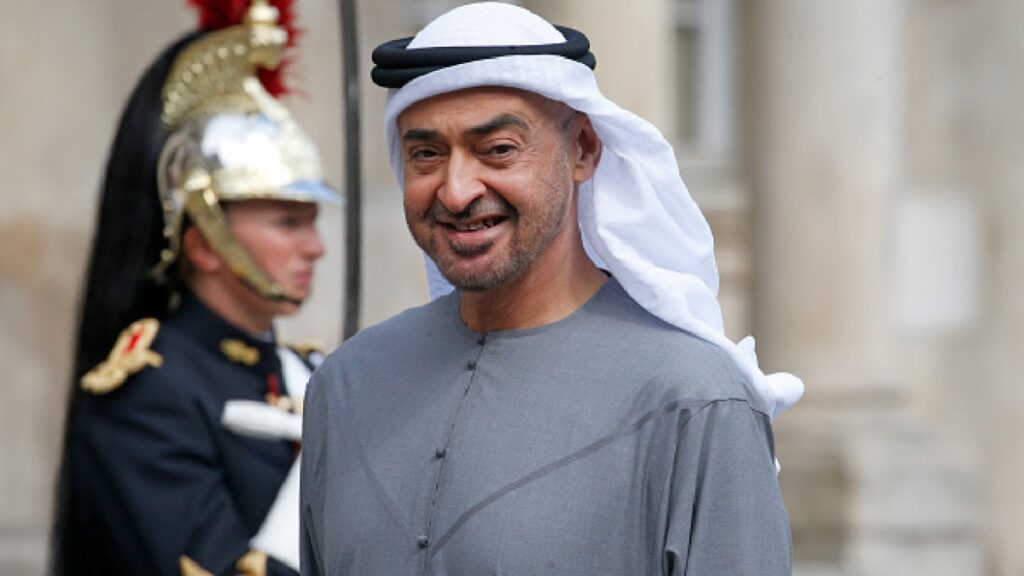
AI Ambitions and the Global Arms Race
Sheikh Tahnoun has shifted his focus from traditional security and surveillance to something even bigger: positioning Abu Dhabi as a global AI superpower. His latest multi-billion-dollar initiative aims to integrate the UAE deeply into the U.S. technology ecosystem, despite concerns over past ties with China.
In early 2024, G42 severed its Chinese partnerships, removing all Huawei equipment to appease Washington. This led to major U.S. tech investments in the UAE, including Microsoft’s $1.5 billion stake in G42, positioning the company as a potential alternative to Huawei in the Gulf.
But Tahnoun’s ambitions don’t stop there. He has engaged in high-profile meetings with Elon Musk, Mark Zuckerberg, Bill Gates, Jeff Bezos, and even President Joe Biden, aiming to establish the UAE as a pivotal AI hub. Reports indicate that Abu Dhabi is exploring a $5-7 trillion AI chip manufacturing venture with OpenAI CEO Sam Altman, seeking to rival Nvidia’s dominance in the field.
The U.S. Dilemma: Ally or Security Risk?
While Tahnoun’s growing influence in AI has drawn interest from Silicon Valley, it has also triggered alarm within U.S. national security circles. In August 2023, Washington blocked the sale of Nvidia’s advanced AI chips to the UAE over espionage concerns. However, following UAE lobbying efforts—including interventions by Emirati ambassador Yousef Al Otaiba—the U.S. quietly lifted the ban, allowing G42 to acquire Nvidia’s H100 chips in late 2024.
This decision has sparked debate in Washington. Critics argue that allowing the UAE unrestricted access to cutting-edge AI technology could pose long-term security risks, especially given the UAE’s past involvement in cyber-espionage programs like Project Raven, which targeted journalists and activists.
The Rise of Abu Dhabi’s AI Empire
Despite skepticism, the UAE has cemented its place as a dominant investor in AI. In 2024, Abu Dhabi launched MGX, an AI investment entity that partnered with BlackRock, Microsoft, and Global Infrastructure Partners to inject over $100 billion into global AI and data center projects.
The UAE’s AI spending has even surpassed Saudi Arabia, which previously held the title of the world’s largest AI investor. This has led to speculation about whether the Gulf’s AI ambitions are driven purely by economic interests or if they align with deeper geopolitical strategies.
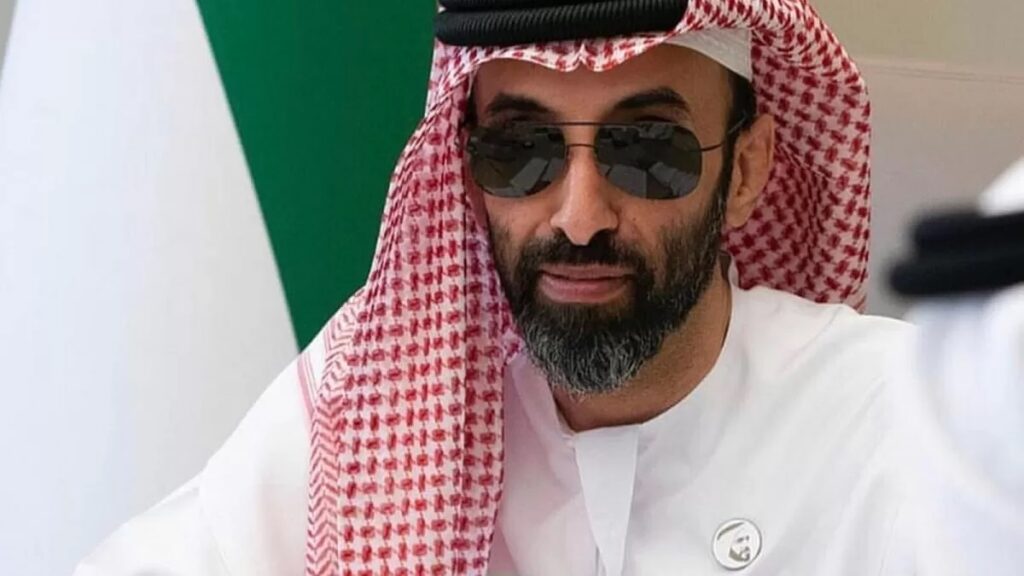
The Bigger Picture: A Gulf Tech Takeover?
With AI becoming the next frontier of geopolitical power, Sheikh Tahnoun has positioned Abu Dhabi as a critical player in the global tech landscape. However, questions remain about the true extent of his ambitions. As U.S. lawmakers debate the security risks of exporting advanced AI technology to the UAE, the Gulf state is rapidly expanding its foothold in Silicon Valley, potentially reshaping the global AI order in the process.
As the AI arms race intensifies, one question looms large:
Is Sheikh Tahnoun the UAE’s greatest visionary, or the ultimate wildcard in the global struggle for technological supremacy?


